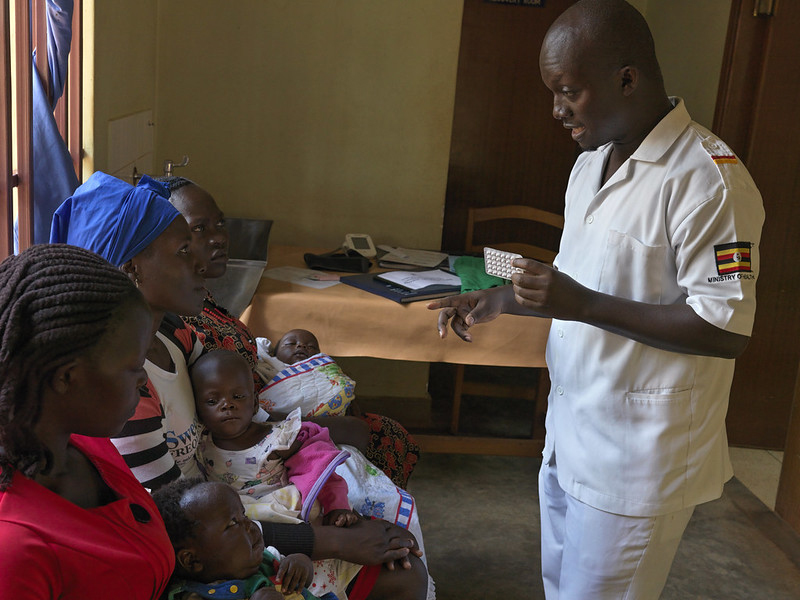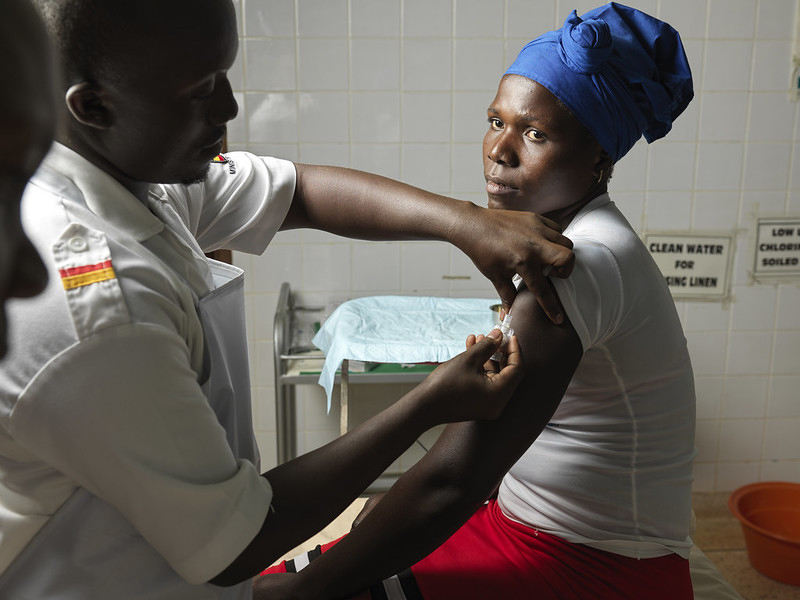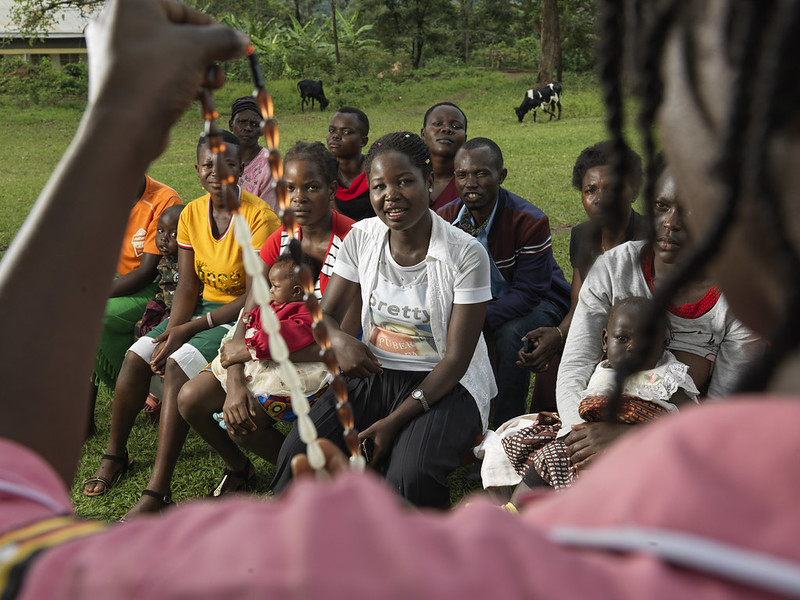In early 2020, the Government of Uganda declared a lockdown with strict measures due to the COVID-19 pandemic; schools closed for 22 months.
“Closed schools meant two things—no learning and teenage pregnancies,” says Teddy Kevin Nabuzale, a psychosocial support counselor with Mbale Youth Group. In some districts in Uganda, teenage pregnancies increased by 30%–50% in 2021 compared to the pre-pandemic period.
Few young people were going to health facilities for family planning services.
We had to use new ways. The youth leaders decided to meet the young people where they live—in the community—for education sessions. The sessions are held outdoors and draw 20 to 50 people, both men and women, aged 15 to 25. Here, we talk about HIV prevention and family planning.”
Teddy Kevin Nabuzale

Uganda has one of the youngest populations in the world, with 22% between the ages of 15 and 24. Youth face a multitude of challenges, including high rates of teenage pregnancies, estimated at 25%. Only 9% of youth ages 15–19 and 28% of 20–24-year-olds currently use a modern family planning method, and unmet need for family planning is around 30%.
To improve these numbers, Teddy’s youth group partnered with the Ministry of Health to combine health talks with family planning services. They convene up to five education sessions each month.
“The majority of the participants are adolescent girls and young women. We, therefore, tailor our sessions to respond to frequently asked questions on family planning, birth planning and economic empowerment. We make referrals to health facilities for family planning services,” says Teddy.
Paul Wanzala serves as a nurse at Tororo General Hospital, one of the health facilities that provide these services. Paul is one of 15 health workers trained by The Challenge Initiative (TCI), with support from Jhpiego, as district family planning master coaches. These coaches are based in 31 health facilities. Paul’s day-to-day activities include leading health education sessions and family planning counseling for women.
On a normal day, I will meet up to 20 mothers. Twenty mothers means 20 families. Twenty families are equipped with information on managing their family size based on income and lifestyle.”
Paul Wanzala

TCI, funded by the Bill & Melinda Gates Institute for Population and Reproductive Health, supports youth and village health teams to mobilize activities to reach as many people as possible. Through the program, youth reach out to other youth for family planning awareness and refer them to health facilities where they can receive family planning services.
“I first came here [Tororo hospital] when my baby was eight months old . . . I listened to the nurse and there were several options [for family planning] to choose from. I want to concentrate on taking care of my baby and on farming,” says Agatha Awori, 28.

“The first time I heard Teddy talk about family planning, I understood. She was patient and answered all my questions. I know that family planning prevents having children ‘together–together’ without spacing. It helps me space my family and have time for income-generating activities,” says Evon Mutuwa, 23.

TCI aims to increase access to modern contraception for urban poor women. Through TCI, Jhpiego provides technical assistance to local governments in Kenya, Tanzania and Uganda as they implement interventions in family planning and adolescent and youth sexual and reproductive health.
Evon and Agatha are among 61,454, young women ages 15 to 24 who received family planning services in 2022 and 2023 through TCI-supported facilities in Mbale.
“Reproductive health services are administered by health care providers at the facility. But we only reach mothers and families who come to the health facility,” says Stella Abigail, Assistant District Health Officer, Mbale district.
“The Mbale Youth Group is able to reach a larger number of people—adolescents, young men and women in the communities who we would not have reached. We partner with young people, such as Teddy, to reach more people and draw them to visit our health facilities,” she says.
Teddy hopes the young people in her community will make informed decisions about their reproductive health and overall well-being.
“An informed decision on reproductive health means making a decision to receive family planning services to prevent unwanted pregnancies, reduce maternal deaths and prevent the spread of STIs [sexually transmitted infections] and HIV. The more information a young person gets, the better their life choices,” says Teddy, who is among the local community leaders making a difference by helping women access family planning services.
Janet Adongo, Senior Technical Specialist in Family Planning and Reproductive Health in Uganda reviewed this story. Joan Nduta is the Senior Communications Manager, Africa Region. Photos by Peter Caton for Jhpiego.



